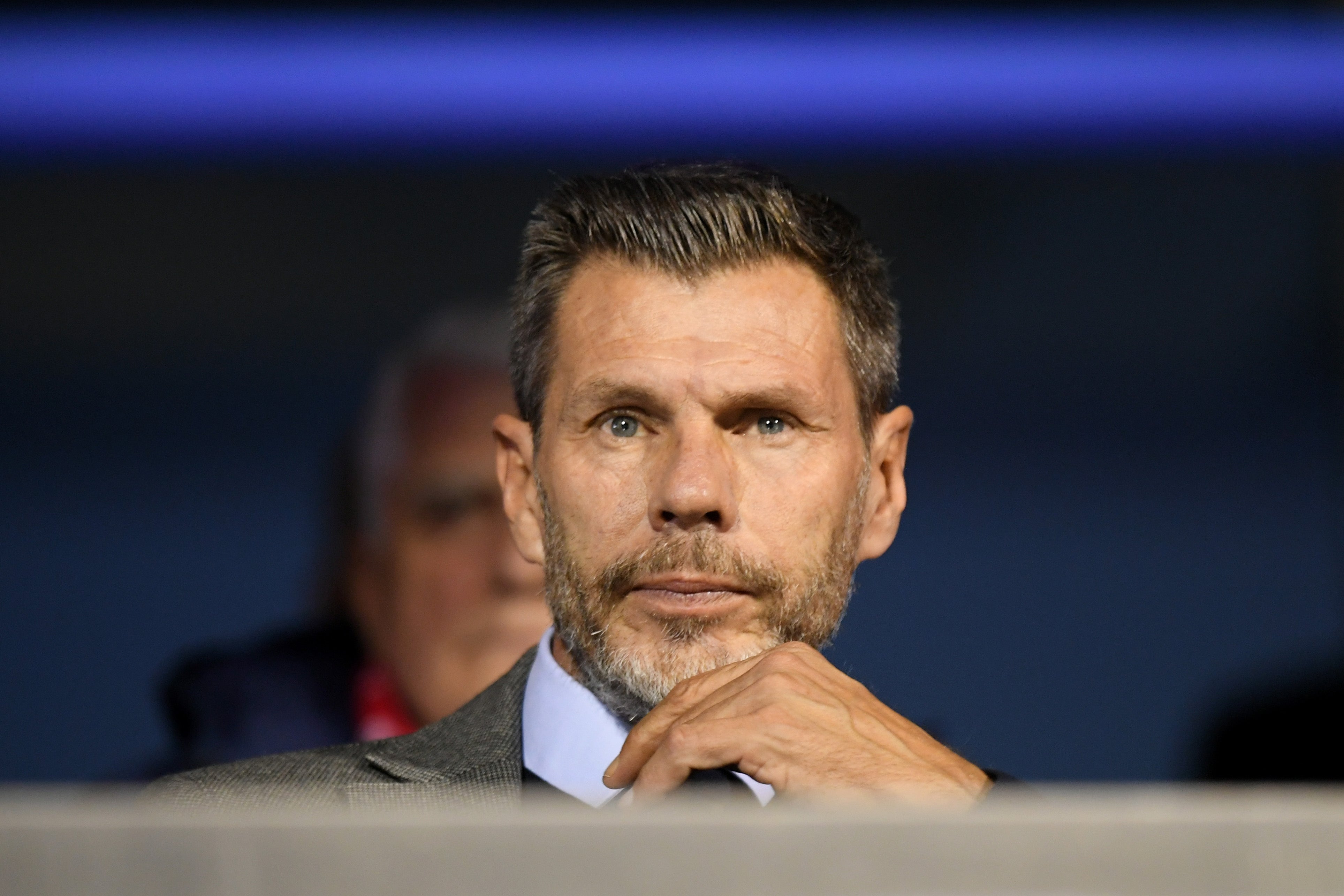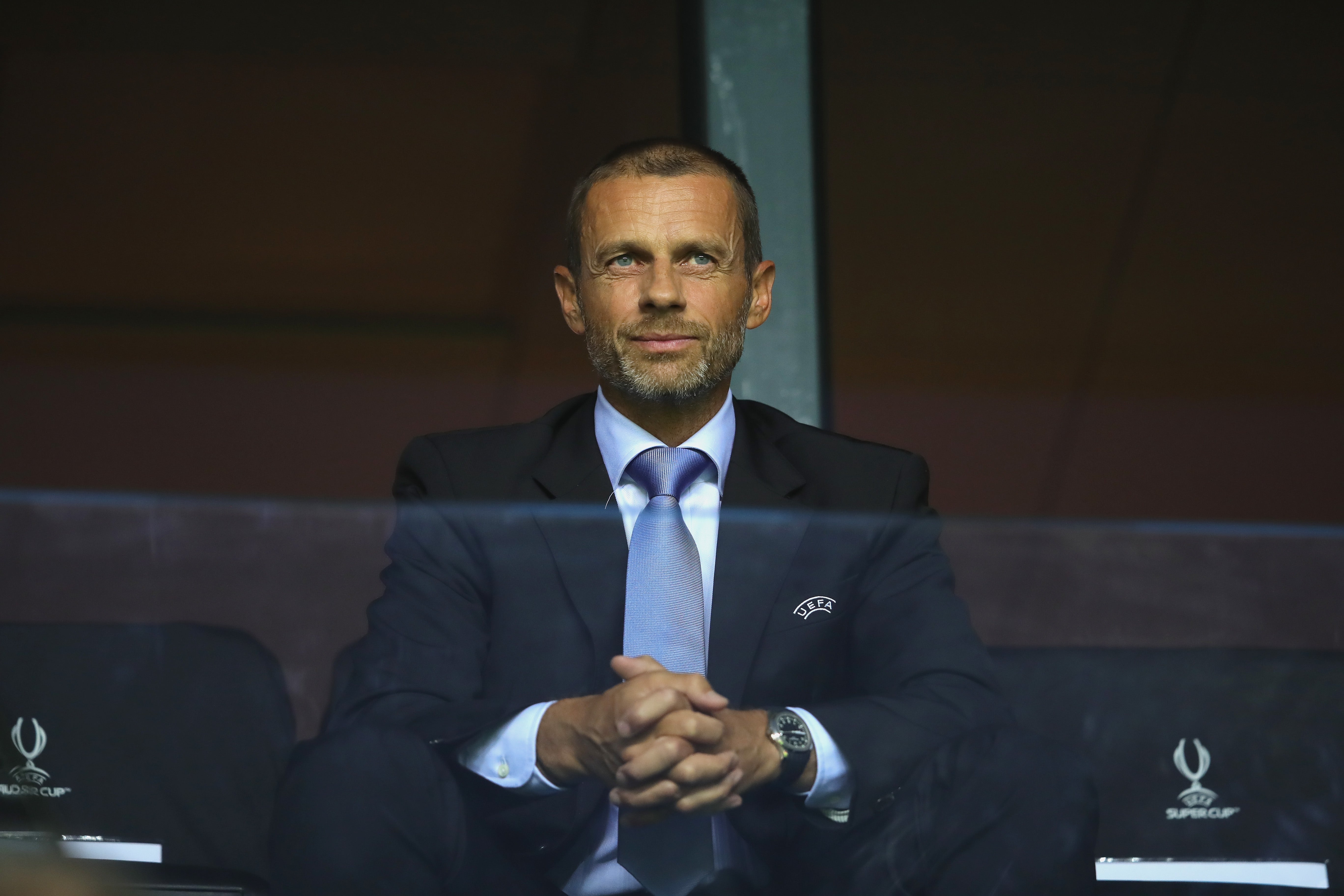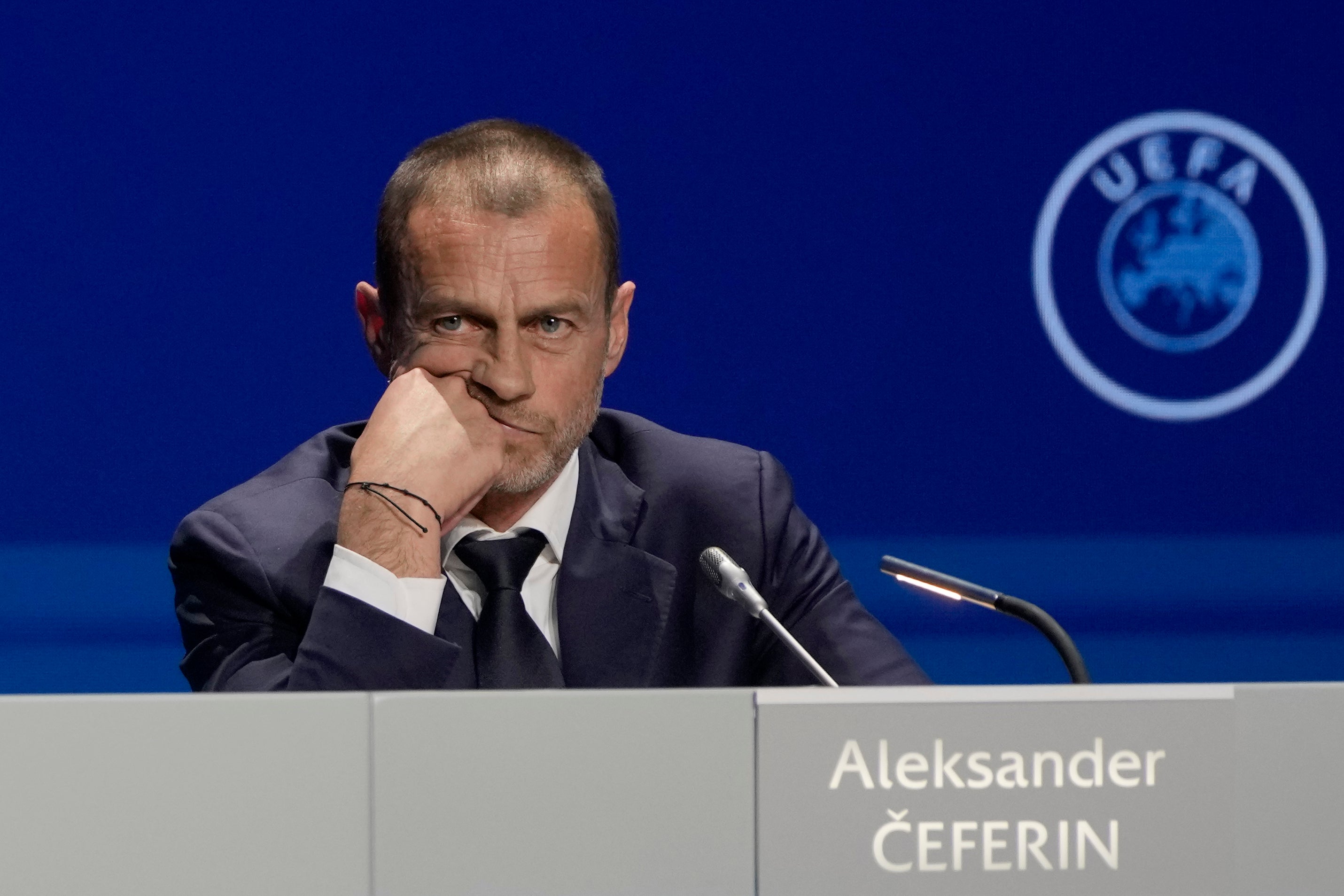The ‘mutiny’ and key resignation behind Uefa’s pending civil war
Former Milan star Zvonimir Boban has resigned from his position as chief of football to, as Miguel Delaney argues, leave president Aleksander Ceferin exposed to a challenge of power, which could shift the trajectory of the sport’s future

As has often become the case in modern football, the last 48 hours off the pitch were as frantic as any 90 minutes on it.
Uefa president Aleksander Ceferin and figures around him have spent much of that time trying to persuade the federation’s chief of football, Zvonimir Boban, not to resign.
The decision to go through with a highly principled departure could mean the Milan legend having a greater influence on the game than even his illustrious performance in the 1994 Champions League final win. It could certainly affect how that very competition is played in the future.
Boban had been seen as a “key Ceferin ally”, sources tell TheIndependent, with the president looking to him to provide legitimacy, in the way football administrators often do with former players. The Croatian has now started to strip Ceferin’s very credibility and become the first figure – and one of the most high-profile possible – to expose huge concerns about the direction of Uefa under the current leadership within the body. There is now “mutiny”, sources say.
Boban’s statement was excoriating, as he said he expressed “deepest concern and total disapproval” over proposed changes to the body’s statutes that could allow Ceferin to stay in position until 2031.
That would mean a total time in office of 15 years, which is seen as entirely undemocratic and going against the reforms the Slovenian himself had put in place.
“His shift away from these values is beyond comprehension,” Boban wrote.
These are not performative words from the former Milan midfielder. They are words from a principled stand by a man who is “clear on his values”.
And yet even that was nowhere near as strong as the real feelings within Uefa, described as “just the start” of a civil war that could eventually bring considerable change. Even Uefa’s shamefacedly benign statement, which attempted to portray this as a “mutual” decision despite Boban’s own words being visible to all, is described as total fantasy.
The proposed change to the statutes, which were even introduced in a manner that enraged many, has only brought ongoing dissatisfaction with Ceferin to a head. There is long-term concern about the direction that Uefa is headed in, as well as the governing body’s complacency in the face of huge football issues.
A heave has already begun behind Romanian chief Razvan Burleanu as a potential challenger.

Ceferin is seen by many influential figures as having “lost himself in power”, more concerned with his position than the wider governance of the game.
Member association chiefs and other Uefa officials don’t like the way the president speaks to them, and feel cut off by how Ceferin only really consults a very small circle, primarily from the Balkans.
That Boban was perceived as part of this is another reason it is viewed as a key development. Many others have meanwhile criticised the experience and even competence of those advising on the biggest issues in the game.
It is seen as a significant factor in what represented Ceferin’s first huge defeat in his role, which was an attempt to bring Russian youth teams back into Uefa competition.
In more prosaic moves that are nevertheless viewed as a return to some of the “bad old days of Sepp Blatter land”, sources complain of the Uefa president requesting bigger and bigger hotel suites, while constantly travelling in luxury and surrounded by personal security. Ceferin’s pay is meanwhile reported by sources to have almost doubled from CHF 1.56m in 2016-17 to CHF 2.875m now. The president’s office is meanwhile described as in practice almost separate to how the general Uefa body works, and very hard to penetrate the circle.
Anyone around the Uefa hotel for the last congress before the Euro 2024 finals draw in Hamburg could view he wasn’t exactly freely mixing with other delegates, a situation viewed as common and described as “an absurd isolation” and “behaviour worthy of a head of state”.
It was at that same Congress that former Manchester United chief executive David Gill stood up to strongly speak out about the proposed changes to statutes, only to receive a sharp reply from Ceferin.
There were already misgivings about how the prospective amendments had been raised, with the legal committee at which they were first discussed abruptly changed to one that was online despite travel arrangements being made.

This was widely seen as a move to prevent open debate.
Ceferin’s justification for the proposed changes in the Daily Telegraph this week – to rectify an invalid provision that had never been properly approved by Uefa’s member associations – was seen as making no sense from a legal perspective. It is also viewed as a post-justification.
It all feeds into a huge dissatisfaction and demotivation among general staff at Uefa, where the culture is described as poor and a long way from the at least competent technocracy of old. That has maybe been best illustrated by the decampment of a series of high-quality executives to Fifa.
That in itself says enough, since this entire episode meanwhile sums up a huge problem with both major governing bodies.
That is the executive presidential structure that runs football. It remains undemocratic, senseless and frankly absurd that so much of the power of the global game is vested in individuals – and usually middle-aged white men – and in a system where that power is also buttressed by its very procedure. It’s not like the presidents of Fifa or Uefa have opposition parties challenging them.

The game can essentially be run to their whims. It has already seen a series of decisions without even votes or public accountability in terms of press conferences. The World Cup has just been handed to Saudi Arabia.
Ceferin has meanwhile been left wanting in his approach to defining issues challenging the game, from state ownership to multi-club projects. Even his one major victory, the response to the European Super League, just saw Qatar extend its influence over football in how Nasser Al-Khelaifi’s influence was strengthened – particularly in his elevation to head of the European Club Association. If you stand back, the situation is quite stark. The Champions League and top end of the club game is the most popular cultural pursuit the planet has ever seen. The World Cup is the most popular event the planet has ever seen. And yet the power from all of this is essentially vested in the hands of two men: the presidents of Uefa and Fifa, whoever they may be. It’s an absurdity that football should be run on these lines, and completely outdated.
That’s why all of this is hugely important and goes beyond the reshuffling of chairs in football governance. That has actually never been more important due to the political and financial forces seeking to reshape the game.
Moments like this affect what we see on the pitch in a few years, from decisions over how strong the big clubs can be to the very structure of competitions. Weighing over all of this is the December case from the European Court of Justice, which was a victory over the old European Super League group, but poses new questions to how Uefa is run. The judgement did specifically say that the sport has to be run in the wider interests of the game.
It is too early to say that structure is now being challenged, but Boban’s principled stance is at least a step against entrenching it. It is also seen as the first public move of a wider civil war.
Through a proposal that could have strengthened Ceferin’s power, though, he may have just opened himself up to a fall.
Join our commenting forum
Join thought-provoking conversations, follow other Independent readers and see their replies
Comments


Bookmark popover
Removed from bookmarks